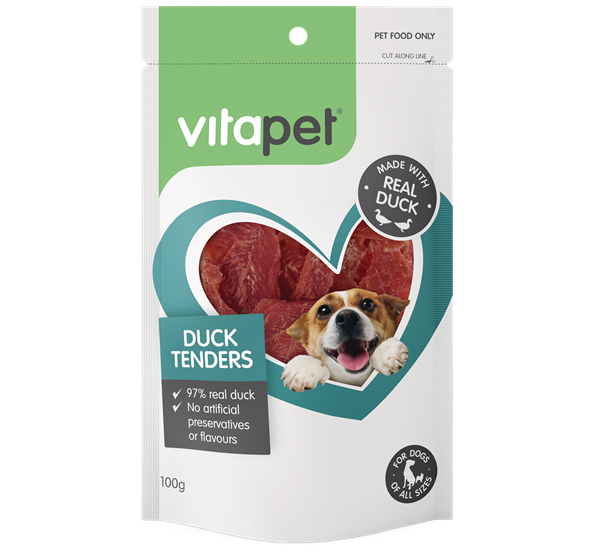Bringing a new puppy into your home is an exciting and joyful experience. However, it can also cause concern if your furry friend refuses to eat. Although alarming for any pet owner, it's important to remember that there are various reasons behind this behaviour.
In this article, we will explore some common causes of a new puppy's loss of appetite and offer solutions to help get your pup back on track to a healthy diet.
1. Stress and Anxiety
Just like humans, puppies can experience stress and anxiety when adapting to a new environment. The change in surroundings, separation from their littermates, and new people can be overwhelming for them. Stress-induced loss of appetite is common in such situations.
To alleviate this, ensure your puppy has a comfortable and secure space of their own, provide gentle reassurance, and maintain a consistent routine to help them feel more at ease.
Gradually introduce them to new experiences and people, allowing them time to adjust and build trust.
2. Transitioning from a Breeder or Shelter
If you've recently adopted a puppy from a breeder or shelter, any sudden change in diet may contribute to their lack of appetite. Puppies often become attached to their previous food and the transition to a new brand or type can be difficult.
To help your puppy adjust to a new food, gradually introduce the new food by mixing it with their old one, slowly increasing the ratio over several days.
Additionally, ensure you're providing high-quality puppy food that meets their nutritional needs. Consult your vet if you need guidance on the best diet for your specific breed.
3. Medical Conditions
A puppy's loss of appetite can also be a symptom of an underlying medical issue.
Common conditions that may affect their appetite include infections, gastrointestinal problems, dental issues, or parasites.
If you suspect a medical problem, it's crucial to consult your veterinarian promptly. They will conduct a thorough examination and run any necessary tests to diagnose and treat the issue. Remember, early intervention can prevent further complications and promote a speedy recovery.
4. Overfeeding or Treat Spoiling
While it may seem counterintuitive, overfeeding or excessive treat spoiling can lead to a puppy's refusal to eat their regular meals. Puppies have smaller stomachs and specific dietary requirements so overindulgence can upset their digestive system and lead to a loss of appetite. Ensure you're feeding your puppy according to the feeding guide and limit puppy treats to occasional rewards (and even then, opt for healthier options made with real meat).
Establish a consistent feeding schedule, offering meals at regular intervals, and removing uneaten food after 15-20 minutes to prevent grazing behaviour.
When faced with a new puppy not eating, it's essential to approach the situation with patience, understanding, and a proactive mindset. By identifying potential causes such as stress, dietary changes, medical issues, or overfeeding, you can take appropriate measures to address the problem. Remember to consult with your veterinarian if your puppy's loss of appetite persists or if you suspect an underlying health condition.
- Creating a calm and secure environment,
- Gradually transitioning to a new diet,
- Establish a consistent feeding routine, and
- Be aware of overfeeding or overtreating.
Additionally, ensuring your puppy receives regular veterinary check-ups and adhering to their recommended vaccination schedule for puppies and worming schedules is crucial for their overall health.
Keep in mind that puppies' appetites can vary from day to day as they grow and develop.
However, if you notice any significant changes in their eating habits, it's always better to be safe and speak to your vet.
Frequently Asked Questions
How to stimulate a puppy's appetite?
Offer small, frequent meals of high-value, palatable food, gently warming it to release aroma. You can use puppy treats to encourage interest and create positive associations with mealtimes. Interactive toys or puzzle feeders can also entice a reluctant eater.
Do puppies go through phases of not eating?
Yes — teething, growth spurts, minor illness, or new environments can temporarily reduce appetite. These phases are usually short-lived but should be monitored closely to ensure your puppy remains hydrated and energetic.
When should you worry about a puppy not eating?
If your puppy refuses food for more than 24 hours, vomits, has diarrhoea, shows lethargy, or displays other unusual symptoms, consult your vet promptly.
Why is my puppy not eating but acting normal?
Occasional skipped meals can be normal, often due to distractions, boredom, or mild digestive changes. If energy, hydration, and behaviour are normal, it’s usually not a concern.
How long can a puppy go without eating?
Puppies should not go longer than 24 hours without food. Smaller breeds may require attention sooner. Fresh water should always be available.
























